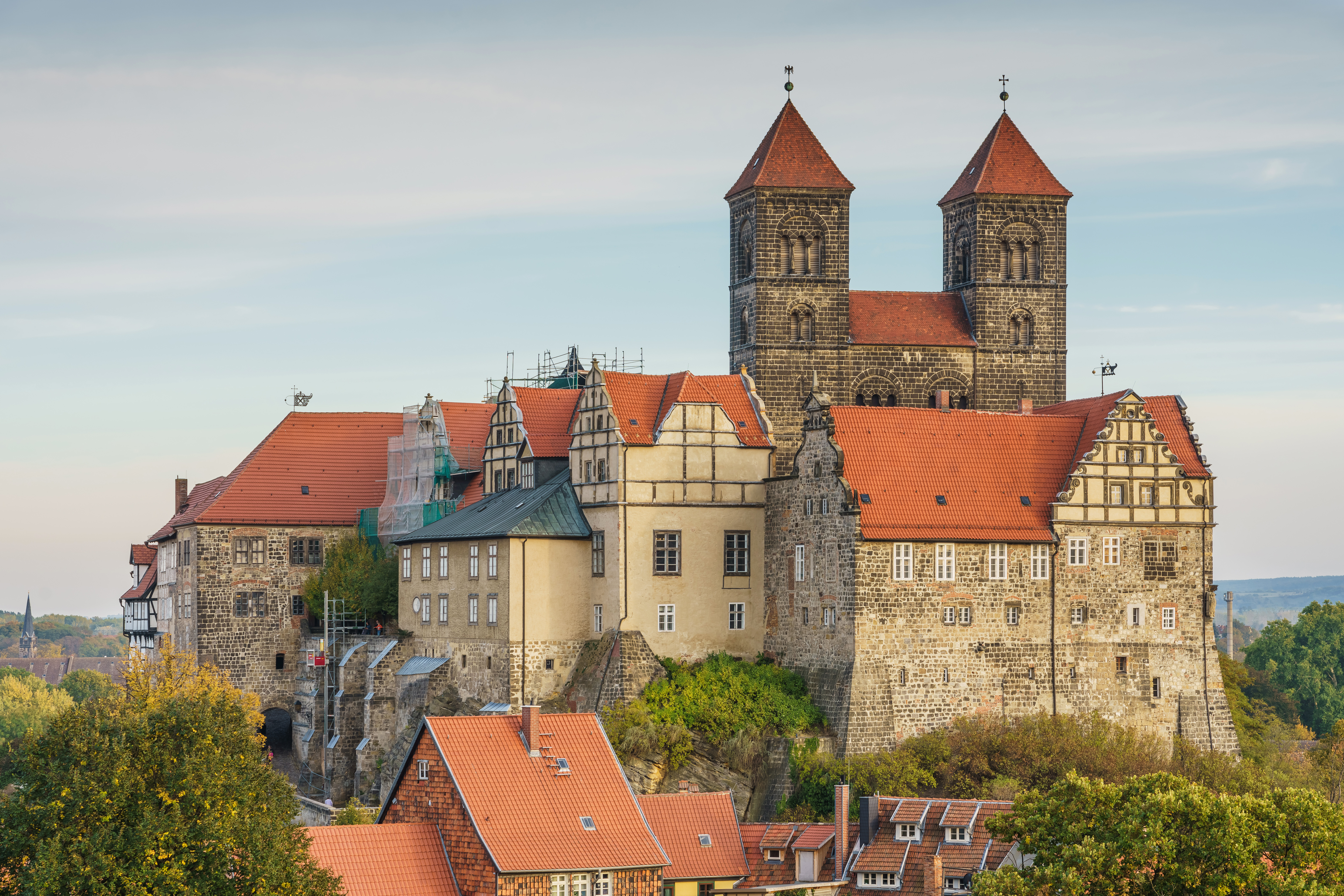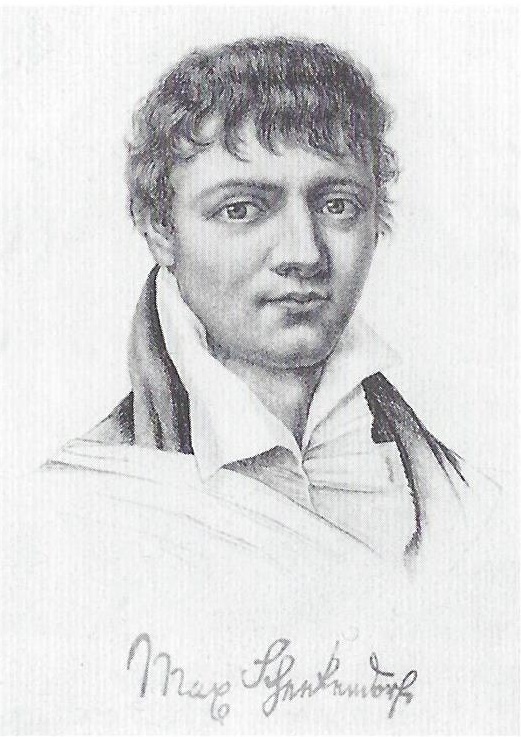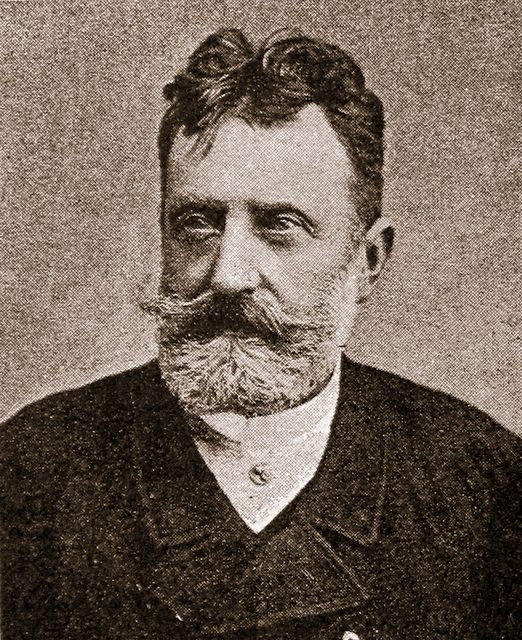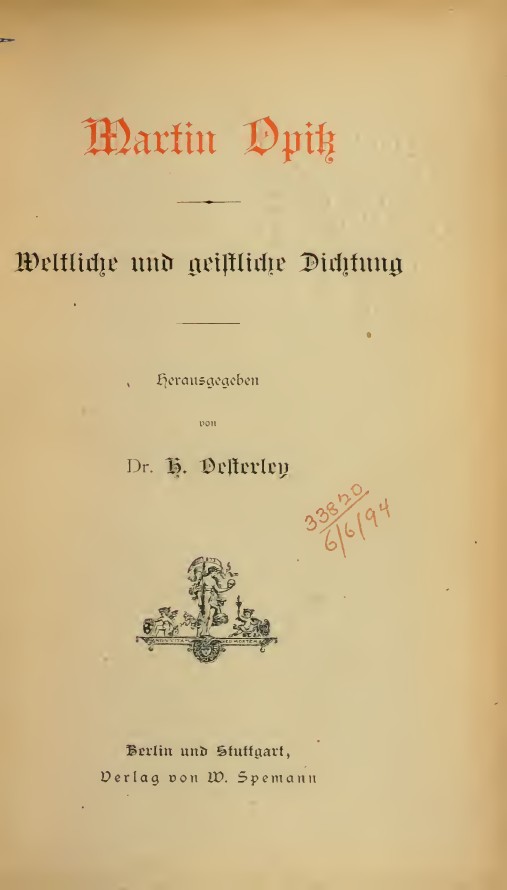|
Pauline Volkstein
Pauline Volkstein (19 January 1849 – 6 May 1925) was a German composer of over 1,000 songs. Volkstein was born in Quedlinburg. She had little formal music training, but came from a musical family. Her mother had studied counterpoint with Friedrich Schneider, and her uncle was cellist and composer Bernhard Cossmann. Volkstein lived in Paris, Dresden, Murano, and Naples before settling in Weimar with her sister in 1905. Her first songs were published around that time. Volkstein set her own poems to music and also composed music for texts by poets Arndt, Bierbaum, Chamisso, Eichendorff, Falke, Fallersleben, Flaischlen, Fleming, Geibel, Gersdorff, Goethe, Greif, Halm, Groth, Heine, Keller, Kerner, Lenau, Liliencron, Lons, Morike, Muller, Opitz, Roquette, Saar, Schenkendorf, Storm, Uhland, and Wolff. She composed some pieces with piano or guitar accompaniment, but wrote many stand-alone melodies that were later arranged with accompaniments by other composers, such as ... [...More Info...] [...Related Items...] OR: [Wikipedia] [Google] [Baidu] |
Quedlinburg
Quedlinburg () is a town situated just north of the Harz mountains, in the district of Harz in the west of Saxony-Anhalt, Germany. As an influential and prosperous trading centre during the early Middle Ages, Quedlinburg became a center of influence under the Ottonian dynasty in the 10th and 11th centuries. The castle, church and old town, dating from this time of influence, were added to the UNESCO World Heritage List in 1994 because of their exceptional preservation and outstanding Romanesque architecture. Quedlinburg has a population of more than 24,000. The town was the capital of the district of Quedlinburg until 2007, when the district was dissolved. Several locations in the town are designated stops along a scenic holiday route, the Romanesque Road. History The town of Quedlinburg is known to have existed since at least the early 9th century, when there was a settlement known as ''Gross Orden'' on the eastern bank of the River Bode. It was first mentioned as a to ... [...More Info...] [...Related Items...] OR: [Wikipedia] [Google] [Baidu] |
Heinrich Heine
Christian Johann Heinrich Heine (; born Harry Heine; 13 December 1797 – 17 February 1856) was a German poet, writer and literary critic. He is best known outside Germany for his early lyric poetry, which was set to music in the form of '' Lieder'' (art songs) by composers such as Robert Schumann and Franz Schubert. Heine's later verse and prose are distinguished by their satirical wit and irony. He is considered a member of the Young Germany movement. His radical political views led to many of his works being banned by German authorities—which, however, only added to his fame. He spent the last 25 years of his life as an expatriate in Paris. Early life Childhood and youth Heine was born on 13 December 1797, in Düsseldorf, in what was then the Duchy of Berg, into a Jewish family. He was called "Harry" in childhood but became known as "Heinrich" after his conversion to Lutheranism in 1825. Heine's father, Samson Heine (1764–1828), was a textile merchant. His mother Peira ... [...More Info...] [...Related Items...] OR: [Wikipedia] [Google] [Baidu] |
Ludwig Uhland
Johann Ludwig Uhland (26 April 1787 – 13 November 1862) was a German poet, philologist and literary historian. Biography He was born in Tübingen, Württemberg, and studied jurisprudence at the university there, but also took an interest in medieval literature, especially old German and French poetry. Having graduated as a doctor of laws in 1810, he went to Paris for eight months to continue his studies of poetry; and from 1812 to 1814 he worked as a lawyer in Stuttgart, in the bureau of the minister of justice. Poetry He began his career as a poet in 1807 and 1808 by contributing ballads and lyrics to Seckendorff's ''Musenalmanach''; and in 1812 and 1813 he wrote poems for Kerner's ''Poetischer Almanach'' and ''Deutscher Dichterwald''. In 1815 he collected his poems in a volume entitled ''Vaterländische Gedichte'', which almost immediately secured a wide circle of readers. To almost every new edition he added some fresh poems. His two dramatic works ''Ernst, Herzog von S ... [...More Info...] [...Related Items...] OR: [Wikipedia] [Google] [Baidu] |
Theodor Storm
Hans Theodor Woldsen Storm (; 14 September 18174 July 1888), commonly known as Theodor Storm, was a German writer. He is considered to be one of the most important figures of German realism. Life Storm was born in the small town of Husum, on the west coast of Schleswig, then a formally independent duchy ruled by the king of Denmark. His parents were the lawyer ''Johann Casimir Storm'' (1790–1874) and ''Lucie Storm'', née Woldsen (1797–1879). Storm attended school in Husum and Lübeck and studied law in Kiel and Berlin. While still a law student in Kiel he published a first volume of verse together with the brothers Tycho and Theodor Mommsen (1843). Storm was involved in the 1848 revolutions and sympathized with the liberal goals of a united Germany under a constitutional monarchy in which every class could participate in the political process. From 1843 until his admission was revoked by Danish authorities in 1852, he worked as a lawyer in his home town of Husum. In 1853 ... [...More Info...] [...Related Items...] OR: [Wikipedia] [Google] [Baidu] |
Max Von Schenkendorf
Gottlob Ferdinand Maximilian Gottfried von Schenkendorf (11 December 1783 in Tilsit in East Prussia – 11 December 1817 in Koblenz) was a German poet, born in Tilsit and educated at Königsberg. During the War of Liberation, in which he took an active part, Schenkendorf was associated with Arndt and Körner in the writing of patriotic songs. His poems were published as ''Gedichte'' (1815), ''Poetischer Nachlass'' (1832), and ''Sämtliche Gedichte'' (1837; fifth edition, 1878). For his ''Life'', consult Hagen Hagen () is the Largest cities in Germany, 41st-largest List of cities and towns in Germany, city in Germany. The municipality is located in the States of Germany, state of North Rhine-Westphalia. It is located on the south eastern edge of the R ... (Berlin, 1863); Knaake (Tilsit, 1890); E. von Klein, ''M. von Schenkendorf'' (Vienna, 1908). Gallery File:Koblenz im Buga-Jahr 2011 - Rheinanlagen 25.jpg, Bust of Max von Schenkendorf in Koblenz File:Grabmal Schenkendorf ... [...More Info...] [...Related Items...] OR: [Wikipedia] [Google] [Baidu] |
Ferdinand Von Saar
Ferdinand Ludwig Adam von Saar (30 September 1833 in Vienna, Austria – 24 July 1906 in Döbling) was an Austrian novelist, playwright and poet. Together with Marie von Ebner-Eschenbach Countess Marie von Ebner-Eschenbach ( cs, Marie von Ebner-Eschenbachová, german: link=no, Marie Freifrau von Ebner-Eschenbach; 13 September 183012 March 1916) was an Austrian writer. Noted for her psychological novels, she is regarded as one of t ... he was one of the most important realistic writers in the German language of the ending 19th century in Austria. References External links * 1833 births 1906 deaths Austrian untitled nobility Austrian male writers Burials at Döbling Cemetery 1906 suicides {{Austria-writer-stub ... [...More Info...] [...Related Items...] OR: [Wikipedia] [Google] [Baidu] |
Otto Roquette
Otto Roquette (April 19, 1824 – March 18, 1896) was a German author. Life and work Roquette was born in Krotoschin, Prussian Province of Posen. The son of a district court councillor, he first went to Bromberg (modern Bydgoszcz) in 1834, and from 1846 to 1850 studied Philology and History in Heidelberg, Berlin, and Halle. After tours in Switzerland and Italy, he moved to in Berlin in 1852. He became a teacher in Dresden in 1853. He returned to Berlin in 1857 and in 1862 became a professor of literary history at the War Academy until he changed to the Vocational Academy (now the Berlin Institute of Technology) in 1867. In 1868 he joined the Vandalia-Teutonia Berlin. From 1869 he taught at the Polytechnic in Darmstadt (now TU Darmstadt). In 1893 he was named to the Geheimrat. Roquette befriended the German author Paul Heyse and, like Heyse, was a member of the literary group "Rütli". Roquette's pseudo-romantic and epigonic lyric poetry and his fairy tale-laden epic verse is rep ... [...More Info...] [...Related Items...] OR: [Wikipedia] [Google] [Baidu] |
Martin Opitz
Martin Opitz von Boberfeld (23 December 1597 – 20 August 1639) was a German poet, regarded as the greatest of that nation during his lifetime. Biography Opitz was born in Bunzlau (Bolesławiec) in Lower Silesia, in the Principality of Schweidnitz-Jauer, the son of a prosperous citizen. He received his early education at the gymnasium of his native town, of which his uncle was rector, and in 1617 attended the high school—"Schönaichianum"—at Beuthen an der Oder (Bytom Odrzański), where he made a special study of French, Dutch and Italian poetry. In 1618 he entered the University of Frankfurt-on-Oder as a student of ''literae humaniores'', and in the same year published his first essay, '' Aristarchus, sive De contemptu linguae Teutonicae'', which presented the German language as suitable for poetry. In 1619 Opitz went to Heidelberg, where he became the leader of the school of young poets which at that time made that university town remarkable. Visiting Leiden in ... [...More Info...] [...Related Items...] OR: [Wikipedia] [Google] [Baidu] |
Wilhelm Müller
Johann Ludwig Wilhelm Müller (7 October 1794 – 30 September 1827) was a German lyric poet, best known as the author of ''Die schöne Müllerin'' (1823) and ''Winterreise'' (1828), which Franz Schubert later set to music as song cycles. Life Wilhelm Müller was born on 7 October 1794 at Dessau, the son of a tailor. He was educated at the gymnasium of his native town and at the University of Berlin, where he devoted himself to philological and historical studies. In 1813-1814 he took part, as a volunteer in the Prussian army, in the national rising against Napoleon. He participated in the battles of Lützen, Bautzen, Hanau and Kulm. In 1814 he returned to his studies at Berlin. From 1817 to 1819, he visited southern Germany and Italy, and in 1820 published his impressions of the latter in ''Rom, Römer und Römerinnen''. In 1819, he was appointed teacher of classics in the Gelehrtenschule at Dessau, and in 1820 librarian to the ducal library. He remained there the rest of hi ... [...More Info...] [...Related Items...] OR: [Wikipedia] [Google] [Baidu] |
Eduard Mörike
Eduard Friedrich Mörike (8 September 18044 June 1875) was a German Lutheran pastor who was also a Romantic poet and writer of novellas and novels. Many of his poems were set to music and became established folk songs, while others were used by composers Hugo Wolf and Ignaz Lachner in their symphonic works. Biography Mörike was born in Ludwigsburg. His father was Karl Friedrich Mörike (died 1817), a district medical councilor; his mother was Charlotte Bayer. After the death of his father, in 1817, he went to live with his uncle Eberhard Friedrich Georgii in Stuttgart, who intended his nephew to become a clergyman. Therefore, after one year at the Stuttgart '' Gymnasium illustre'', Mörike joined the Evangelical Seminary Urach, a humanist grammar school, in 1818 and from 1822 to 1826 attended the Tübinger Stift. There, he scored low grades and failed the admission test to Urach Seminary, yet was accepted anyhow. At the Seminary he went on to study the classics, something that ... [...More Info...] [...Related Items...] OR: [Wikipedia] [Google] [Baidu] |
Hermann Löns
Hermann Löns (29 August 1866 – 26 September 1914) was a German journalist and writer. He is most famous as "The Poet of the Heath" for his novels and poems celebrating the people and landscape of the North German moors, particularly the Lüneburg Heath in Lower Saxony. Löns is well known in Germany for his famous folksongs. He was also a hunter, natural historian and conservationist. Despite being well over the normal recruitment age, Löns enlisted and was killed in World War I and his purported remains were later used by the German government for celebratory purposes. Life and work Hermann Löns was born on 29 August 1866 in Kulm (now Chełmno, Poland) in West Prussia. He was one of twelve siblings, of whom five died early. His parents were Friedrich Wilhelm Löns (1832–1908) from Bochum, a teacher, and Klara (née Cramer; 1844–96) from Paderborn. Hermann Löns grew up in Deutsch-Krone (West Prussia). In 1884, the family relocated back to Westfalen as his fathe ... [...More Info...] [...Related Items...] OR: [Wikipedia] [Google] [Baidu] |
Detlev Von Liliencron
Baron Detlev von Liliencron born Friedrich Adolf Axel Detlev Liliencron (3 June 1844 in 22 July 1909) was a German lyric poet and novelist from . Biography Liliencron was the son of Louis (Ludwig) von Liliencron and Adeline von Harten. He entered the Prussian army and took part in the campaigns of 1866 and 1870–71 ([...More Info...] [...Related Items...] OR: [Wikipedia] [Google] [Baidu] |

.jpg)







.jpg)